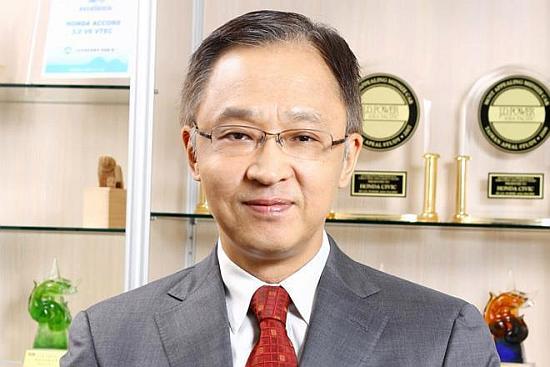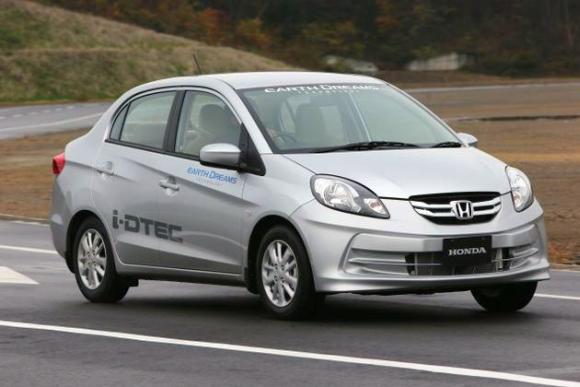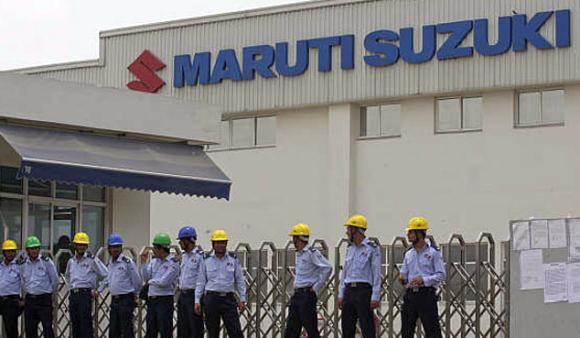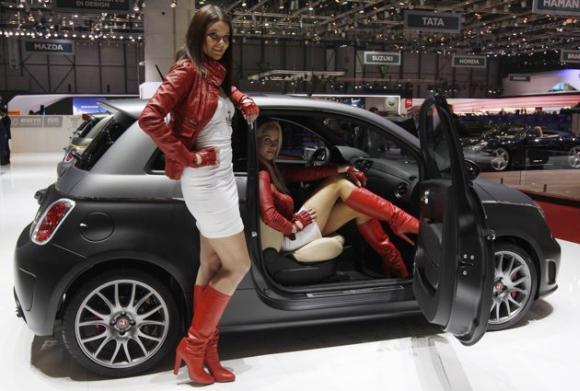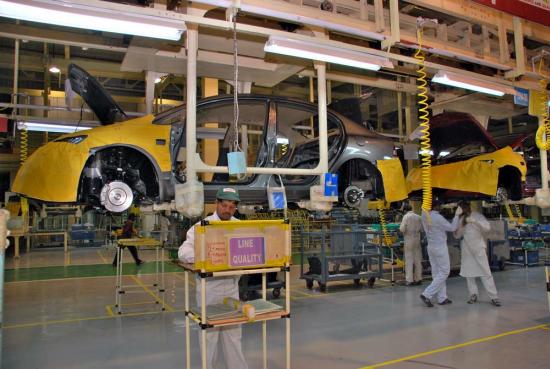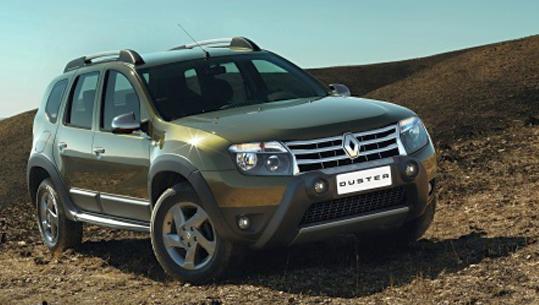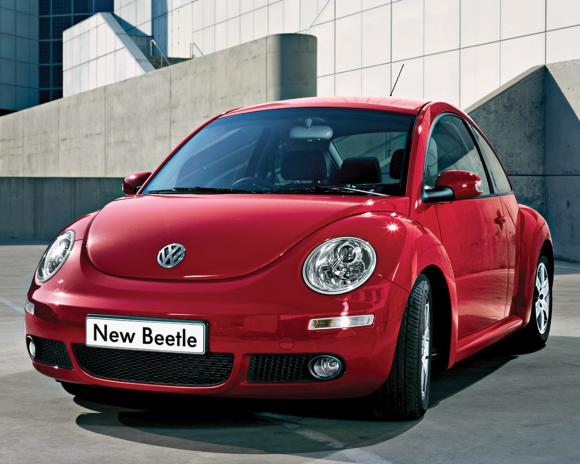 | « Back to article | Print this article |
Slowdown? These auto firms are betting big on India
Don't tell Hironori Kanayama that investing almost $500 million in a market enduring its worst slump for 12 years is a questionable business decision. Honda Motor Co's India head sees only one way forward: Keep calm and carry on.
Global carmakers such as General Motors Co and Volkswagen AG that have between them poured billions of dollars into factories, product development and marketing in India's once-booming car market are now struggling as slow economic growth, high interest rates and rising fuel prices keep their target customers from parting with their cash.
Still, automakers like Honda say they can only grit their teeth and continue to invest - or risk missing out on what experts expect to be the world's third-biggest car market by 2020 and a foothold in an emerging global small-car export hub.
Click NEXT to read more...
Slowdown? These auto firms are betting big on India
"If there was any worry, we would never have done this," Kanayama said in an interview in Mumbai. "Of course it's a pity that the economy is sluggish, but it doesn't worry us at all."
Honda said on April 2 - two days after the end of the worst financial year for Indian car sales since 2001 - that it was spending Rs 2500 crore (Rs 25 billion) to double its output capacity in the country to 240,000 cars per year by 2014.
"The potential is very high here," Kanayama said. "Our investment is based on such long-term projections."
Honda is not alone in appearing to be throwing good money after bad in India's sagging automotive market.
Click NEXT to read more...
Slowdown? These auto firms are betting big on India
Ford Motor Co is spending $1 billion on a new factory even as its current plant runs at only 60 per cent of capacity. Maruti Suzuki India Ltd, controlled by Japan's Suzuki Motor Corp, is spending around $750 million to add 250,000 cars annually.
Carmakers say India's huge population, low car penetration and rising incomes mean sales can only go up in the long run, while the opportunity to export to Africa and the Middle East makes for a compelling investment case. Sales fell 7 per cent in the last fiscal year.
"Clearly we believe the macro conditions are a short-term blip," said Nagesh Basavanahalli, managing director of Fiat SpA and its Chrysler unit in India.
Click NEXT to read more...
Slowdown? These auto firms are betting big on India
Basavanahalli, who took the reins at the Italian and US carmakers this month, has been tasked with trying to re-launch the Fiat brand and introduce its Jeep and Abarth lines in India even as well-established names like India's own Tata Motors Ltd see sales plummet.
"Are there challenges? Yes. But are we very confident based on the product plan that we have and based on the actions we are taking? ... Absolutely yes," he said.
Not everyone is convinced.
France's Peugeot SA last year shelved a 600 million euro (approx Rs 4,233 crore) plan to build a factory in India, and a senior executive at an Asian automaker not present in India told Reuters last month that the company did not think the potential returns on setting up a factory were large enough.
Click NEXT to read more...
Slowdown? These auto firms are betting big on India
Glimmer Among Gloom
Importantly, Honda's investment is not just in capacity.
The Japanese carmaker launched a new sedan model last week and, like others, is in the process of adding diesel options across its range as it races against global rivals to tap market segments that are still growing as overall demand falls.
Government subsidies make diesel cheaper than petrol.
Customers hit hardest by the economic gloom have been first-time buyers and the emerging middle class which relies on bank loans for big purchases, analysts say, with sales of small cars - which account for over 70 per cent of the market - falling by around 10 per cent.
Click NEXT to read more...
Slowdown? These auto firms are betting big on India
By contrast, demand for sports utility vehicles (SUVs) and mid-level diesel cars has risen, with models such as Maruti Suzuki's diesel Dzire and Renault's low-cost Duster SUV helping their companies outperform rivals.
Honda's new Amaze sedan, which starts at Rs 500,000, is in a segment where sales were up 21 per cent last financial year.
Ford, Fiat-Chrysler, Maruti and Honda are all lining up to launch new compact SUVs.
The firms which lack models in the growth segments are suffering most. Volkswagen, whose Indian failings are a blot on its global success, built 66,699 cars in the country in the last financial year - equivalent to no more than 31 per cent of capacity, according to a report by Kotak Securities.
Click NEXT to read more...
Slowdown? These auto firms are betting big on India
General Motors' Indian unit, whose sales fell 20 per cent in the last financial year, lost Rs 746 crore (Rs 7.46 billion) in the financial year ended March 2012.
Some of GM's rivals are working to increase exports from their less-than-stretched Indian production lines to offset the local slump. Volkswagen nearly tripled exports from India last year and Ford now exports almost a third of its Indian cars.
Long-term estimates vary, but almost all industry analysts expect India's annual car sales to hit 6 million by 2020, when it will trail only China and the United States.
Click NEXT to read more...
Slowdown? These auto firms are betting big on India
The Society of Indian Automobile Manufacturers (SIAM), the industry's primary lobby group, has estimated sales of 9 million by then.
Optimists cite a young, fast-urbanising population, rising incomes and an expected rebound in the country's economic growth, in addition to paltry ownership levels of around 12 cars per 1,000 people, according to SIAM, about a quarter of China's.
"The entire structural story of India's car potential still holds true, despite the current cyclical downturn," said Jinesh Gandhi, automotive equities analysts at brokerage Motilal Oswal in Mumbai.
"I would clearly invest in new capacities for the future rather than wait for the market to turn around."

© Copyright 2025 Reuters Limited. All rights reserved. Republication or redistribution of Reuters content, including by framing or similar means, is expressly prohibited without the prior written consent of Reuters. Reuters shall not be liable for any errors or delays in the content, or for any actions taken in reliance thereon.
